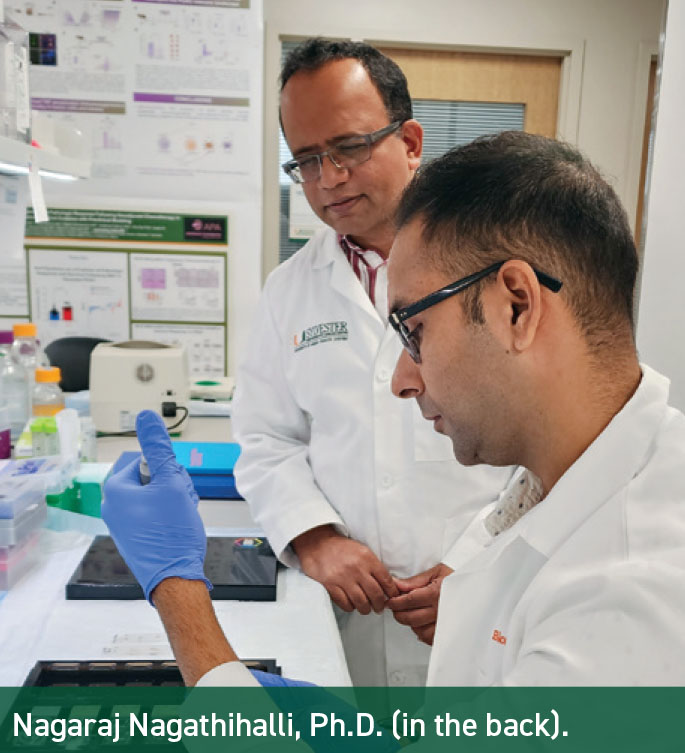His studies will center on pancreatic cancer and therapeutic options.

The Florida Department of Health has awarded Nagaraj Nagathihalli, Ph.D., an associate professor at Sylvester Comprehensive Cancer Center at the University of Miami Miller School of Medicine, a $583,200 grant to study tobacco risk, tumor progression and therapeutic options for pancreatic cancer.
A leading cancer biologist, Dr. Nagathihalli has been working to identify driving cellular and molecular mechanisms related to how tobacco promotes pancreatic cancer progression and aggressiveness, and to develop new therapeutic strategies to reduce the poor outcomes associated with this disease.
“Despite such a high prevalence of tobacco-associated pancreatic cancer in the population, mechanistic understanding of how tobacco consumption precedes pancreatic neoplasia remains limited,” said Dr. Nagathihalli, principal investigator on the study and associate professor in the DeWitt Daughtry Family Department of Surgery at the Miller School. “Ingesting tobacco smoke triggers inflammatory and immune responses resulting in inflammation and fibrosis of the pancreatic parenchyma, providing a milieu amenable to the aggressive progression of pancreatic neoplasia and to evade therapeutic intervention.”
“Although every cancer is different, it is essential that the scientific community integrate the lessons we have learned from other tobacco-related cancers into therapeutic approaches. Both immune stimulation and curtailing immune evasion are crucial to improve outcomes for pancreatic cancer patients, who are uniquely susceptible due to their specific smoking-induced mechanism,” Dr. Nagathihalli said.
The incidence of pancreatic cancer in the U.S. is rapidly increasing, and the burden is particularly high in Florida. Despite being the 12th most common cancer diagnosed, pancreatic cancer will soon overtake colorectal cancer as the second leading cause of cancer death in the U.S.